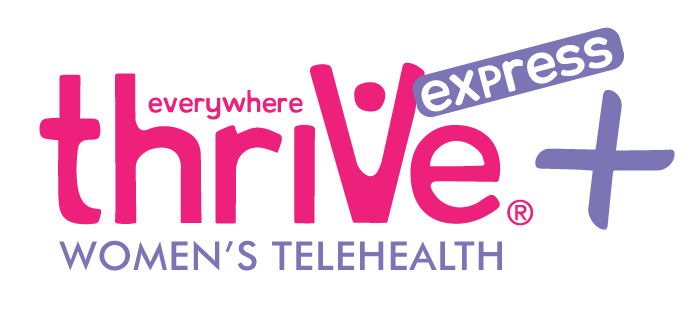How to take a pregnancy test: your questions answered.
We know that taking a pregnancy test can be a bit nerve-wracking, especially if it’s your first time or you’re not planning a pregnancy. But remember, there are no dumb questions when it comes to your health and well-being. Thrive+ is here to guide you through the process and let you know that you’re not alone. We offer no-cost, lab quality pregnancy tests to support you. Let’s dive into some common questions about taking a pregnancy test.

When should I take a pregnancy test?
The best time to take a pregnancy test is usually after your period is late. Most tests can accurately detect pregnancy about 7-10 days after conception.
Cleveland Clinic, Pregnancy Tests
Where can I get a pregnancy test?
A: You can find pregnancy tests at most drugstores, grocery stores, or online. But did you know that Thrive+ offers no-cost lab-quality pregnancy tests? When you’re dealing with an unplanned pregnancy, you shouldn’t have to worry about the cost.
How do I use a home pregnancy test?
Let’s break down how to take a pregnancy test. It’s quite simple! Follow these steps:
- Read the instructions that come with the test kit carefully.
- Collect your urine in a clean, dry cup or container.
- Dip the pregnancy test stick into the urine or use the provided dropper to apply a few drops.
- Lay the test flat on a clean surface and wait for the designated time (usually 3-5 minutes) as mentioned in the instructions.
- Check the results. A positive result typically shows two lines or a plus sign, while a negative result usually shows one line or a minus sign.
Cleveland Clinic, Pregnancy Tests
What if I get a positive result?
If you get a positive result, it’s essential to confirm it with a healthcare provider like Thrive+. A healthcare professional can provide you with more information, answer your questions, and discuss your options (abortion, adoption, or parenting). Knowing how to take a pregnancy test is the first step, but what happens afterwards? There are compassionate nurses here at Thrive+ who can help you out with that — and provide judgment-free information about your options
What if I get a negative result but still haven’t gotten my period?
A negative result might be accurate, but it’s possible that you took the test too early. Wait a few more days and retest if your period still hasn’t arrived. Read more about false negatives on pregnancy tests. If you continue to have concerns or experience unusual symptoms, consult a healthcare provider or call us.
How accurate are home pregnancy tests?
Home pregnancy tests are usually very accurate when used correctly. However, no test is 100% foolproof. Factors like the timing of the test and how you follow the instructions can affect accuracy.
Mayo Clinic, Home pregnancy tests: Can you trust them?
What if I can’t afford a pregnancy test?
Thrive+ is here to help. We offer no-cost, lab quality pregnancy tests, STD screenings, and ultrasounds. You can reach out to us for support during this time.

How do I deal with the emotions that come with taking a pregnancy test?
Taking a pregnancy test, or even thinking about how to take a pregnancy test can stir up a lot of emotions, which is completely normal. Here’s how to deal with those feelings:
1. Stay Calm: First, take a deep breath and try to stay calm. Emotions can be overwhelming, but it’s okay to feel what you’re feeling.
2. Talk to Someone: Find someone you trust, like a parent, your partner, or close friend, and share your feelings with them. They can give you support and guidance.
3. Understand the Results: Make sure you understand the test results correctly. Knowing whether you’re pregnant or not is crucial before making any decisions. We’re here to help you read your results if you’d like.
4. Get Informed: You’re taking the first step by learning how to take a pregnancy test. Learn about pregnancy, your options, and the responsibilities that come with it. Knowledge will help you make informed choices.
5. Seek Professional Help: Consider talking to a healthcare professional or patient advocate who specializes in reproductive health. They can give you accurate information and help you explore your options.
6. Take Your Time: Don’t rush into any decisions. Take the time you need to think about what’s best for you and your future.
7. Lean on Support: Surround yourself with supportive friends and family who care about you. They can provide emotional support during this challenging time. Set aside time to talk to your partner.
8. Self-Care: Focus on self-care to manage your emotions. This might include journaling, taking walks, or engaging in hobbies you enjoy.
9. Remember You’re Not Alone: Many people have been in similar situations, and there are supports and resources available to connect you with others who understand.
10. Prevention: If the test is negative and you want to prevent pregnancy in the future a healthcare provider can help you explore your options. Choosing not to have sex is the only 100% effective way to prevent pregnancy.
In short, it’s okay to have strong emotions after taking a pregnancy test. Even reading about how to take a pregnancy test can be hard. Reach out to trusted people, gather information, and take your time to make the best decision for you. You’re not alone, and there is support available.




